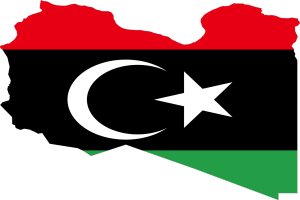
Geneva: The war-torn Libya, divided between a United Nations-recognised Government of National Accord (GNA) based in the capital Tripoli and the rival administration led by the western-based self-styled Libyan National Army (LNA) commander General Hafter since the fall of former ruler Muammar Gadaffi in 2011, has apparently moved towards peaceful resolution of the crisis following the selection of an interim Prime Minister and President of the country’s new executive council by the 74-member United Nations-led Libyan Political Dialogue Forum (LPDF) on February 5, 2021.
“Today we have very good news in our search for peace,” United Nations Secretary-General António Manuel de Oliveira Guterres stated in New York.
While welcoming the members of LPDF of selecting a unified temporary executive authority with Mohammad Younes Menfi, selected President of the Presidency of the Presidency Council, where he will serve with Mossa Al-Koni, Abdullah Hussein Al-Lafi, and Prime Minister designate Abdul Hamid Mohammed Dbeibah, Guterres called on all members of the dialogue and the Libyan and international stakeholders to respect the results of the vote.
It may be mentioned that after the UN Security-Council endorsed the conclusions of the international Conference on Libya in Berlin, the United Nations Support Mission in Libya (UNSMIL) had facilitated the first round of Libyan Political Dialogue Forum (LPDF) from November 7 to 15, 2020 in the Tunisian capital, Tunis. The LPDF brought together 75 participants Libyan women and men representing the full social and political spectrum of the Libyan society, who held talks in two virtual sessions on November 7 and 8 and then continued with in-person meetings from 9 to 15 November, last year. The Acting Special Representative of the Secretary-General for Libya and Head of UNSMIL, Stephanie Williams, facilitated the talks while the United Nations Development Programme (UNDP) provided the organisational and operational support to the LPDF.
The talks had concluded with the LPDF agreeing for a democratic national elections in Libya on the country’s 70th independence day – December 24, 2021 – that could end the transitional phase and enable Libyans choose a new way forward. The LPDF participants had also agreed on the need to reform the executive authority in line with the conclusions of the Berlin Conference. and outlined the structure and prerogatives for the Presidency Council and a separate Head of Government.
Following the selection of new interim leadership by the LPDF yesterday, acting Special Representative and head of the UN Support Mission in Libya (UNSMIL), Stephanie Williams, said, ““On behalf of the United Nations, I am pleased to witness this historic moment…This process, your process, has come a long way from when we first convened you virtually in October of last year…The importance of the decision that you have taken here today will grow with the passage of time in the collective memory of the Libyan people.”
Guterres while congratulating the three new members of the Presidential Council and the Prime Minister designate on their selection, wished them every success in their mandate to lead the country for the remainder of the Preparatory Phase leading up to national elections on 24 December 2021. He said the new government reflected political pluralism, geographic representation, and the commitment to include no less than 30 per cent of women in executive positions, as well as to ensure the participation of youth. “I also call on the new executive authority and all concerned Libyan stakeholders to uphold the principles and timelines set out in the Tunis Road Map,” he said.
The UN Secretary-General also appreciated the Government of Switzerland for hosting the Libyan Political Dialogue Forum, to the members of the Berlin Process for their continued support, as well as Stephanie Williams, “for her leadership, commitment and tireless efforts” for facilitating the intra-Libyan dialogue.
“The United Nations commitment to support the Libyan people in their efforts to build a peaceful and prosperous country will continue. After the ceasefire that was agreed, the election that now took place shows that Libya is moving in the right direction,” Guterres said.
It may be recalled that the UN Secretary‑General, when he took office four years ago, had said he was most optimistic about the conflict in Libya, the one that was the easiest to solve. However, that optimism was dashed many times in the last four years. To a pointed question on ow optimistic was he now, after the latest development, Stéphane Dujarric, Spokesman for the Secretary-General, said in New York: “Look, I think we’re moving in the right direction, and I think what we’ve been seeing is… are Libyan political leaders putting the interests of the Libyan people first and foremost. We’ve seen great efforts on the part of our acting Special Representative, Stephanie Williams, and her team. I think this… the Secretary‑General is optimistic but also very much realistic, but he… this is a very important move in the right direction.”
– global bihari bureau





Woah! I’m really enjoying the template/theme of this website.
It’s simple, yet effective. A lot of times it’s tough to get
that “perfect balance” between user friendliness and appearance.
I must say you have done a awesome job with this.
Also, the blog loads extremely quick for me on Opera. Excellent Blog!